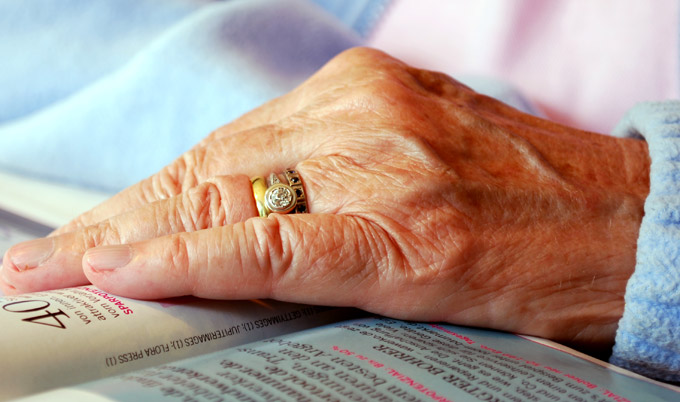Frailty covid-19
Study shows increased risks of death in COVID-19 patients with frailty
Published on: 5 February 2021
New research has revealed for the first time the extent to which frailty increases the risk of mortality in COVID-19 patients.
The Geriatric Medicine Research Collaborative (GeMRC) – involving experts from Newcastle University - is now calling for improved global public health policy after their research showed that frailty, independently of older age, increases the risk of death from COVID-19.
The clinical observational study, involving 5,711 patients with COVID-19 at 55 hospitals across 12 countries, found that very severely frail individuals with COVID-19 are three times as likely to die than those who were not frail, even taking into account their age.
The study, published today in Age and Ageing and led by the University of Birmingham, also found that those with severe frailty who survived the virus were seven times more likely to need increased care at home, or in care homes, following recovery.

Frailty risk factor
Frailty is a state where the body becomes more vulnerable to the effects of illness. It is identified by clinicians using a holistic assessment that considers how much support a person needs from others in their daily living before becoming unwell. The risk of frailty increases as we get older, but it can develop at all ages.
Dr Sarah Richardson, National Institute for Health Research Academic Clinical Lecturer at Newcastle University, based at the NIHR Newcastle Biomedical Research Centre, is a co-author of the paper.
She said: “Older age was identified as a clear risk factor for dying from COVID-19 very early in the pandemic. However, we all age differently and using age alone as a predictor of mortality does not account for this variability.
“Our findings are important as we have shown that more severe frailty, independent of age, is associated with an increased risk of death from COVID-19.
"These findings emphasise the urgent need for further research into treatments and rehabilitation following COVID-19, and the necessity to include participants in these studies who are older and more frail.
“As well as answering important questions of major clinical significance regarding COVID-19, this study is a tribute to the hard work of hundreds of geriatric medicine trainees who contributed to the study alongside their busy clinical work.
"It really demonstrates how geriatric medicine specialists are well placed to deliver high impact, international research.”
Public health policy
GeMRC hopes the research findings will influence public health policy, including advice on shielding and recommendations for vaccination priority for the frail.
Professor Miles Witham, Deputy Lead for NIHR Newcastle BRC’s Ageing Syndromes theme was on the Advisory Group for this research.
He added: “This important research emphasises that frailty is not the same as ageing, and that clinicians and policymakers need to go beyond age when assessing patients with COVID-19 and designing healthcare systems for these patients both in and outside of hospital.
“The results reinforce how important frailty is in determining how we respond to illness - which is why frailty is a key area of interest for us in the NIHR Newcastle BRC.
“Studies like this are essential in giving clinicians, patients and relatives the information that they need to have honest conversations about the likely outcome of COVID-19, and to make sure that realistic, appropriate treatment is given for all older patients in line with their preferences.”
The research, supported by the National Institute for Health Research (NIHR), is the largest international study of its kind to date and scientists at the University of Birmingham are leading the group.
The results also showed that delirium - a sudden onset confusion which is extremely prevalent in patients with COVID-19 – is not itself independently associated with increased risk of mortality.
Meanwhile, the findings also showed an increased likelihood of transition to a higher level of care on discharge from hospital for COVID-19 patients with increasing age, frailty, delirium, dementia, and mental health problems.
Further research is encouraged to understand what factors affect recovery of physical function and quality of life with COVID-19, and the inclusion of older adults with frailty in such research is paramount.
Reference
Wilson et al. ‘Age and frailty are independently associated with increased COVID-19 mortality and increased care needs in survivors: results of an international multi-centre study’. Age and Ageing. DOI: 10.1093/ageing/afab026



